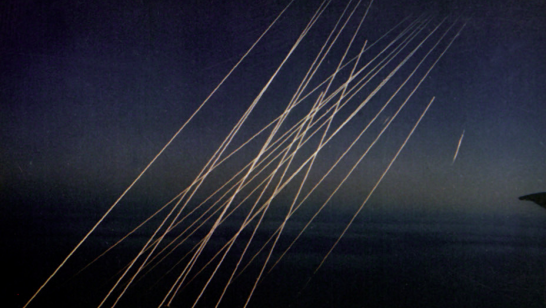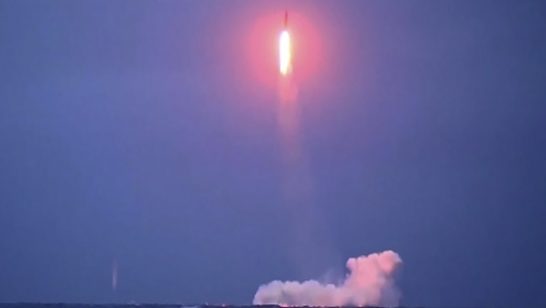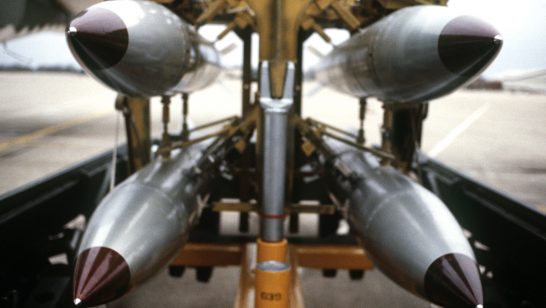Over the past decade, geopolitical relations among the major powers have deteriorated and the threshold of nuclear use has lowered due to the near-total erosion of arms control, the modernisation of nuclear arsenals in all P5 states as well as a move, by some P5 states, to include “limited nuclear use” in their national security strategies. These developments, and the fiftieth anniversary of the Nuclear Non-Proliferation Treaty’s entry-into-force, are stark reminders of the risks stemming from nuclear weapons.
Against this strained security environment, the ELN has issued a group statement, signed by 141 security experts from 30 countries, calling upon the five recognised nuclear-weapon states by the Nuclear Non-Proliferation Treaty (NPT) – China, France, Russia, the United Kingdom, the United States (the P5) – to launch a sustained, open-ended and regular panel on strategic risk reduction.
Full statement reproduced below.
***********
Appeal for P5 states to reduce nuclear weapons risks
Over the past decade, relations among the major powers have deteriorated, while strategic risks and mistrust among nuclear powers have increased. Key factors have been the near-total erosion of arms control, and new complexities and risks arising within nuclear and strategic conventional modernisation, including the imminent arrival of artificial intelligence and machine learning in the military-strategic domain. These developments, and the fiftieth anniversary of the Nuclear Non-Proliferation Treaty’s entry-into-force, are stark reminders of the risks stemming from nuclear weapons.
Meanwhile, the Covid-19 pandemic has shown the need for more international cooperation to recover from the global health crisis, as states continue to place blame on each other’s lack of transparency or belated decisions. In the run-up to the tenth NPT review conference, the P5 states (China, France, Russia, the United Kingdom, the United States), have stopped short of delivering nuclear reductions. Both the P5 and non-nuclear-weapon states have a joint obligation to move towards disarmament under NPT Article VI.
The progress that the P5 have made on Article VI has slowed in part due to persisting mistrust about each other’s intentions, stemming from allegations of non- compliance with arms control agreements and claims that the nuclear force modernisations of some states contradict their rhetoric. As a result, nuclear-weapon states have hardened their nuclear postures in response to threat perception instead of cutting arsenals.
At this critical time, therefore, we call upon the P5 states to reduce nuclear weapons risks through several concrete measures. Committing to a regular, sustained and open-ended P5 dialogue on strategic risk reduction through a dedicated working group could be the first step towards concerted efforts to this end by the established nuclear powers.
A sustained dialogue committed to preventing and reducing the risk of nuclear weapons use is in the vital interests of both the P5 and non-nuclear-weapon states. The P5 can build on their ongoing exchanges on nuclear doctrines to clarify remaining ambiguities that have jeopardised geostrategic relations within the frameworks of their respective nuclear policies. Resolving misunderstandings about each other’s intentions and actions would increase strategic stability by reducing the risks of miscalculation and misperception.
Given the expressed interest of non-nuclear and nuclear-weapon states to engage in strategic and nuclear risk reduction – as prominently reflected in the NPT final documents of 2000 and 2010, the 2019 G7 Statement on Non-Proliferation and Disarmament, and in the work of the Creating an Environment for Nuclear Disarmament (CEND) initiative and the Stockholm Initiative – committing to a P5 dialogue process presents an opportunity to incorporate P5 views into the overall agenda and explore synergies with the aforementioned risk reduction initiatives.
Creating a working group on strategic risk reduction is a feasible action that the P5 can undertake in the current environment to positively affect the proceedings at the next NPT Review Conference and contribute to its success. In the absence of nuclear reductions, a working group on strategic risk reduction is a practical way for the P5 to demonstrate their seriousness about addressing the concerns expressed by many non-nuclear-weapon states, as well as civil society, about the potential risks stemming from nuclear weapons, despite the current challenges.
Despite its value, a dialogue process on strategic risk reduction can only be a first start for agreeing and implementing concrete measures in the next review cycle, for defusing tensions, as well as for responding to non-nuclear-weapon state interest in addressing the risk issue as comprehensively as possible. In line with their obligation under NPT Article VI, the P5 should at a minimum discuss measures related to restoring military-to-military engagement between the P5 to avoid missteps and misunderstandings and to decide on actions not to take in a crisis in the space and cyber domains. The P5 must also address the risks of most concern to non-nuclear- weapon states, including through steps to reduce the role of nuclear weapons in national security strategies.
To have meaningful impact, a P5 working group must be embedded in the NPT process and be receptive to the input of non-nuclear weapon states regarding the risks of most concern. All States Parties have a vital stake in these issues. The P5 and non-nuclear weapon states can work on tangible P5 and non-P5 deliverables in the sphere of risk reduction for the next NPT review cycle that are conducive to disarmament.
Signatories:
Albania
- Fatmir Mediu, Former Defence Minister
Austria
- Alexander Kmentt, Former Permanent Representative of Austria to the Political and Security Committee of the European Union
- Ambassador ret. Dr Wolfgang Petritsch, President, Austrian Marshall Plan Foundation
Belarus
- Yauheni Preiherman, Founder and Director, Minsk Dialogue Council on Foreign Relations
- Ambassador Vladimir Senko, Former Minister of Foreign Affairs, former Permanent Representative to EU and NATO, and Ambassador to the United Kingdom
- Andrei Yeliseyeu, Research Director, Eurasian States in Transition (EAST) Centre
Bulgaria
- Dr Solomon Passy, Former Minister of Foreign Affairs and Founding President of the Atlantic Club of Bulgaria
- Todor Tagarev, Head, Centre for Security and Defence Management, Institute of ICT, Bulgarian Academy of Sciences
Canada
- Kitty Hazel, Development Director, European Leadership Network
- Stefanie von Hlatky, Associate Professor of Political Studies, Queen’s University
China
- Dr Tong Zhao, Senior Fellow, Carnegie-Tsinghua Center for Global Policy
Croatia
- Ambassador Budimir Lončar, Minister of Foreign Affairs of Yugoslavia; Special Advisor to the Rector of Liberias International University
- Ivo Šlaus, Nuclear physicist and Honorary President, World Academy of Art and Science
Denmark
- Uffe Ellemann-Jensen, Former Minister of Foreign Affairs
- Mogens Lykketoft, Former Minister of Foreign Affairs and former President of the United Nations General Assembly
- Anders Fogh Rasmussen, Former Secretary-General of NATO, Prime Minister of Denmark, and CEO of Rasmussen Global
Finland
- Dr Tarja Cronberg, Former Member of the European Parliament
- Dr Tytti Erästö, Senior Researcher, SIPRI (in private capacity)
- Ambassador ret. Jaakko Laajava, Former Under-Secretary of State
- Admiral ret. Juhani Kaskeala, Former Chief of Defence Forces
France
- Héloïse Abdalan, University Consortium Fellow
- Nicole Ameline, Former Minister and Chair of the Defence and Security Committee of the NATO Parliamentary Assembly
- Dr David Cadier, Researcher, Sciences Po, Paris
- Admiral ret. Alain Coldefy, Former Vice Chief of Defence Staff
- Michel Duclos, Former Ambassador and Special Advisor for Geopolitics, Institute Montaigne
- Juliette Faure, University Consortium Fellow
- François Heisbourg, Special Advisor, Fondation pour la Recherche Stratégique
- Pierre Lellouche, Former Secretary of State and First Deputy of Paris
- Emmanuelle Maitre, Research Fellow, Fondation pour la Recherche Stratégique
- Alain Richard, Senator and former Minister of Defence
Georgia
- Valeri Chechelashvili, Former First Deputy Minister for Foreign Affairs
- Tedo Japaridze, Former Foreign Policy Adviser to the Prime Minister of Georgia, Former Minister of Foreign Affairs
- Tinatin Japaridze, University Consortium Fellow
- Beka Kiria, Founder and Director of Gagra Institute, Tbilisi
- Ia Tserodze, University Consortium Fellow
Germany
- Dr Stefanie Babst, Senior Associate Fellow, European Leadership Network
- Julia Berghofer, Policy Fellow and Vice-chair, Younger Generation Leaders Network (YGLN)
- Heinrich Brauss, Former NATO Assistant Secretary-General for Defence Policy and Planning, Senior Associate Fellow, German Council of Foreign Relations
- Angela Kane, Former United Nations High Representative for Disarmament Affairs
- Roderich Kiesewetter, Representative of the CDU/CSU Caucus to the Bundestag Foreign Affairs Committee
- Silvana Koch-Mehrin, President of Women Political Leaders Global Forum
- Dr Maximilian Hoell, Policy Fellow, European Leadership Network
- Dr Klaus Naumann, General (ret.), German Atlantic Association
- Rudolf Scharping, Federal Minister of Defence
- Dr Klaus Wittman, Senior Fellow, Aspen Institute Deutschland
- Karsten Voigt, Former member of the Bundestag and former President of the NATO Parliamentary Assembly
- Uta Zapf, Former Chairwoman of the Parliamentary Sub-Committee on Disarmament, Arms Control and Non-Proliferation
Hungary
- Balazs Csuday, Former Permanent Representative of Hungary to the United Nations, Vienna
- János Martonyi, Former Minister for Foreign Affairs
Italy
- Francesco Calogero, Emeritus Professor of Theoretical Physics, University of Rome La Sapienza and ex-officio member of the Pugwash Council
- Federica Mogherini, Former EU High Representative for Foreign Affairs and Security Policy
- Dr Nathalie Tocci, Director IAI and Special Advisor to EU High Representative for Foreign Affairs and Security Policy Josep Borell
Kazakhstan
- Dr Vera Axyonova, Managing Director, Academics in Solidarity, Freie Universität Berlin, Germany
Latvia
- Diana Potjomkina, Secretary of the YGLN
Moldova
- Vadim Pistrinciuc, PhD, Executive Director Institute for Strategic Initiatives, Republic of Moldova
Netherlands
- Laurens Jan Brinkhorst, Former Deputy Prime Minister
- Angelien Eijsink, Former NATO Parliamentary Assembly Vice-President and Member of Parliament 2003-2017
- Bert Koenders, Former Minister of Foreign Affairs
Norway
- Dr Gro Brundtland, Former Prime Minister and Director-General of the World Health Organisation
Poland
- Dr Katarzyna Kubiak, Senior Policy Fellow, European Leadership Network
- Janusz Onszkiewicz, Former Minister of Defence
- Adam D Rotfield, Former Minister of Foreign Affairs, Poland, and Professor at the Warsaw University
- Dr Bartosz Rydlinski, Aleksander Kwasniewski’s Foundation, Poland
- The Hon. Radoslaw Sikorski MEP, Former Minister of Foreign Affairs and Defence, and Member of the European Parliament
Russia
- Dmitry Androssow, Member of the Federal Political Council of the People’s Freedom Party (PARNAS)
- Alexander A. Bessmertnykh, Former Minister of USSR/Russia; President, International Foreign policy Association; Chairman, World Council of former Foreign Ministers
- Lieutenant-General (Ret.) Evgeny Buzhinsky, Former Head of the International Treaties Department and Deputy Head of the Directorate of International Military Cooperation, Ministry of Defence
- Alexander Dynkin, President Primakov IMEMO, Moscow
- Dr Alexey Gromyko, Director of the Institute of Europe, Russian Academy of Sciences, RAS Member
- Nikita Gryazin, University Consortium Fellow
- Igor Istomin, Associate Professor, MGIMO University
- Pavel Kanevskiy, Chair of the YGLN, Associate Professor in Politics at the Lomonosov Moscow State University
- Anna Osetrova, University Consortium Fellow
- Dmitry Polikanov, Board Member, PIR Centre
- Dr Sergey Rogov, Director of the Institute for the US and Canadian Studies of the Russian Academy of Science (ISKRAN)
- Mikhail Rostovskiy, Journalist and Commentator, Moskovsky Komsomolets
- Dr Pasha Sharikov, Leading research fellow, Institute for USA and Canadian Studies Russian Academy of Sciences
- Dr Ivan Timofeev, Director of Programs, Russian International Affairs Council
- Dr Petr Topychkanov, Senior Researcher, SIPRI (in private capacity)
- General ret. Vyacheslav Trubnikov, Former Director of the Russian Foreign Intelligence Service, IMEMO Russian Academy of Science Directorate Member
- Inal Tugov, University Consortium Fellow
- Igor Yurgens, Chairman of the Board of the Institute of Contemporary Development foundation, Vice-President of the Russian Union of Industrialists and Entrepreneurs
Serbia
- Ivana Milatovic, Political communications specialist and member of the Younger Generation Leaders Network
- Dr Mira Milosevich-Juaristi, Senior Analyst for Russia and Eurasia, Elcano Royal Institute for International and Strategic Studies
- Goran Svilanović, Former Minister of Foreign Affairs of the Federal Republic of Yugoslavia and former Secretary General, Regional Cooperation Council
Slovakia
- Katarina Kertysova, Policy Fellow, European Leadership Network
- Juraj Nosal, Member of Younger Generation Leaders Network, Slovakia
Sweden
- Ingvar Carlson, Former Prime Minister
- Rolf Ekeus, former Ambassador and Distinguished Associate Fellow, SIPRI
- Andreas Persbo, Research Director, European Leadership Network
- Henrik Salander, Ambassador, Swedish Academy of War Sciences
Spain
- Dr Javier Solana, Former NATO Secretary-General
Switzerland
- Marc Friedli, University Consortium Fellow
Turkey
- Dr Zaynep Alemdar, Founder, Women in Foreign Policy Initiative
- Dr Mustafa Aydin, President, International Relations Council of Turkey
- Hikmet Çetin, Former Minister of Foreign Affairs
- Vahit Erdem, Former MP and Head of Delegation to the NATO Parliamentary Assembly
- Özdem Sanberk, Former Ambassador and Undersecretary of the Ministry of Foreign Affairs
- Ahmet Üzümcü, Former Permanent Representative to NATO and former Director-General of the Organisation for the Prohibition of Chemical Weapons
Ukraine
- Oleksandr Chalyi, Former First Deputy Minister for Foreign Affairs and President, Grant Thornton LLC
- Dr Anatoliy Grytsenko, Former Defence Minister of Ukraine
- Tetiana Melnyk, Research Fellow, Odessa Center for Non-proliferation
United Kingdom
- The Rt. Hon Bob Ainsworth, former Defence Secretary
- The Rt. Hon the Lord Arbuthnot of Edrom, former Chair of the Defence Select Committee and member of the House of Lords
- The Rt. Hon Margaret Beckett, Member of Parliament
- Sebastian Brixey-Williams, Co-Director, BASIC
- Sir Tony Brenton, former Ambassador to Russia
- The Rt. Hon Alistair Burt, former Minister of State for the Middle East
- Ben Challis, Policy Fellow, European Leadership Network
- The Rt. Hon Lord (Des) Browne of Ladyton, Former Defence Secretary and Chair of the European Leadership Network
- The Rt. Hon Lord (Menzies) Campbell of Pittenweem, former leader of the Liberal Democrats and Honorary President, European Leadership Network
- The Rt. Hon Charles Clarke, former Home Secretary
- Rear Admiral John Gower, former Assistant Chief of Defence Staff (Nuclear and Chemical, Biological), UK Ministry of Defence
- Sir Nick Harvey, former UK Minister of State for Defence
- Lord (David) Hannay of Chiswick, former Ambassador to the United Nations and Chair of UK All Party Parliamentary Group on Global Security and Non-Proliferation in the UK Parliament
- Lord (Tom) King of Bridgwater, former Defence Secretary
- Jane Kinninmont, Director of Impact, European Leadership Network
- Esther Kersley, Communications and Commissioning Officer, European Leadership Network
- The Rt. Hon Lord (John) Kerr of Kinlochard, former Ambassador to the United States and EU
- Simon Lunn, Senior Associate Fellow, European Leadership Network
- Sir John McColl, former NATO Deputy Supreme Allied Commander Europe (DSACEUR) and Lieutenant Governor of Jersey
- Tom McKane, former Director General for Strategy and Security Policy, UK Ministry of Defence
- Imogen Naldrett, Action Group Officer, European Leadership Network
- The Rt. Hon Lord (David) Owen, Former Foreign Secretary
- General the Lord (David) Ramsbotham, retired British Army officer, former Adjutant General and ADC General to Her Majesty the Queen
- General the Lord (David) Richards of Herstmonceux, former Chief of the Defence Staff, member of the House of Lords
- Lord (Peter) Ricketts, former National Security Advisor, former Permanent Under Secretary and Head of Diplomatic Service
- Sir Malcolm Rifkind QC, former Foreign and Defence Secretary
- Sahil Shah, Policy Fellow, European Leadership Network
- Shatabisha Shetty, Co-founder, European Leadership Network
- The Rt. Hon Lord (David) Triesman, former Parliamentary Under-Secretary (Foreign and Commonwealth Office), and former General Secretary of the Labour Party
- Sir Adam Thomson, Director, European Leadership Network
- Dr John Walker, Senior Associate Fellow, European Leadership Network
- Admiral the Lord (Alan) West of Spithead, former Chief of Defence Intelligence, First Sea Lord, Parliamentary under-secretary of state for Security, Counter-Terrorism and Cyber Security, Member of the House of Lords
- Claudia Westwood, University Consortium Fellow
- Nicholas Williams, Senior Associate Fellow, European Leadership Network
United States
- Dr Lewis A. Dunn, Former U.S. Ambassador to the Review Conference on the Treaty on the Non-Proliferation of Nuclear Weapons
- Dr Roxane Farmanfarmaian, Senior Associate Fellow, European Leadership Network
- Adam Hitchcock, Co-Founder, Sovereign Infrastructure Group
- Morgan Jacobs, Programme Associate, Kennan Institute, Woodrow Wilson International Centre for Scholars
- Daniel Shapiro, University Consortium Fellow
The opinions articulated above represent the views of the signatories and do not necessarily reflect the position of the European Leadership Network or any of its members. The ELN’s aim is to encourage debates that will help develop Europe’s capacity to address the pressing foreign, defence, and security policy challenges of our time.
Image: Wikimedia commons



